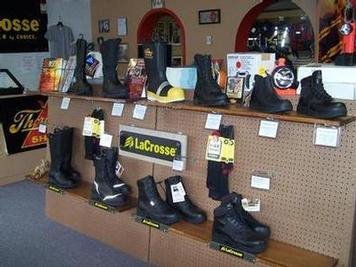[The following article originally appeared in the Roanoke Times on October 12, 2006]
.
The Soft Bigotry of Can't-Do
By Jerry Fuhrman
By Jerry Fuhrman
When it comes to discussing long-term economic prospects for Southwest Virginia, a perplexing sort of defeatism reigns.
A pervasive and frustrating can't-do attitude. What President Bush has called the soft bigotry of low expectations.
It manifests itself in gatherings of area business and political leaders, most recently in the "Creating A New Economy in Southwest Virginia" conference in Abingdon this past June attended by Gov. Tim Kaine and Rep. Rick Boucher, D-Abingdon. At such gatherings, it is accepted as fact that the direction in which our corner of the state is headed takes us away from that which has worked best over the years and toward a kind of competition-proof "asset-based" economy centered around basket weaving and banjo plucking.
It can be seen in the recently inaugurated "Return To Roots" campaign introduced with great fanfare by Kaine and state Sen. Phil Puckett, the thrust of which is to implore, with the creation of an Internet Web site, the estimated 15,000 high school and college graduates who have migrated from the area in recent years to return here where "job opportunities are exploding."
Those new jobs, except at one government-created data storage center over in Lebanon, mostly involve inbound and outbound telephone call centers. The fact that our elected officials consider it necessary to beg native Virginians to come home says a good bit about the likelihood of their success and about the attractiveness of those "exploding" job opportunities.
In fact, it is manufacturing that has been the lifeblood of this region for many decades. And it is this segment of the economy that gets short shrift in discussions about our future.
We hear it all the time. Manufacturing is on the decline. Has been for years. It's a disparity in wages. We can't compete with the Chinese. It is more cost-effective to cut down a tree in Wise County, put it on a boat headed for Shanghai, where it is made into cheap furniture and returned to Wise County and sold at the local Wal-Mart in Big Stone Gap, than it is to manufacture the cheap furniture in Wise County in the first place. We've heard it; we all know it to be true.
This is why we resort to talking about our future as being in asset-based basket weaving and banjo picking. Because we can't compete with the Chinese.
Well, you might find this interesting. The Chinese government, in partnership with a company called Nanjing Automotive, has announced its intention to build a new automobile manufacturing plant (in which it intends to revive the legendary MG brand) ... in Oklahoma. That's Oklahoma, USA. Low-wage China.
Why? Because the market is here; the highly motivated, productive labor pool is here; the raw materials are here in abundance, and because officials in Oklahoma haven't adopted the idea that manufacturing is dead in the United States of America.
So we are witness to this spectacle: While we accept plant closing after plant closing here in Southwest Virginia as being, somehow, God's plan, and seek, in response, a workforce made up of pickers, pluckers and pottery producers, the manufacturing sector prospers in other areas of the country.
Has the U.S. experienced devastating industry job losses in recent years? Without doubt. But if one looks at durable goods, Southwest Virginia's greatest strength, employment in America's factories is at an all-time high.
Is our workforce, in terms of productivity and output, still the envy of the world? You bet. Does manufacturing still provide 12 percent of our Gross Domestic Product? Fully. Can American manufacturers compete with the Koreans and the Chinese? If they're smart, efficient and unencumbered by burdensome government taxation and regulations.
So what it comes down to is this: We here in Southwest Virginia can compete with anyone in today's global arena. If we choose to. Unfortunately, we have leaders who choose not to. Perhaps it is time for the citizens of Southwest Virginia to choose for them.

